In the background, with the tower, 511 North Mangum St.
North Mangum St. remains one of Durham's most pleasant residential streets north of Geer Street. During the late 19th and early 20th centuries, the residential portion of the neighborhood was still in close proximity to downtown, with large houses along the 400, 500, and 600 blocks of the street. During the early 20th century, with extension of the streetcar line north to the beltline railway, the neighborhood grew northward.
This photo is taken facing south on Mangum at the intersection with Hunt Street - note the streetcar line running down the center of the street.
(Photo courtesy Durham County Library)
In 1919, the inhabitants of the 500 block of North Mangum were:
West side:
501 CA Jordan
503 Mrs. Fannie Briggs
505 AA Holder
507 Mrs. Rowena Rigsbee
511 RH Rigsbee
515 Mrs. Ada Smith
519 BH Thomas
521 LG Cole
522 MD Bright
523 Theo Thompson
East side:
502 HD O Briant
506 WF Freeland
508 SP Mason
510 Mrs. LR Holloway
512 WA Fulford
518 TH Christian
520 Mrs. EC Bernard
522 MD Bright
526 Vacant
Bird's Eye view looking northeast at the 500-600 blocks of Mangum
1937 Sanborn, west side- gas stations had begun to proliferate on formerly residential corners.
1937 Sanborn, east side.
By the 1950s, commercial expansion had begun to alter this block considerably, with progressive teardowns for commercial development. No longer a desirable location for residents who could maintain large houses, large houses on the edge of downtown either were abandoned or became rooming houses.
1959 aerial shot of the 500 block of Mangum St. - 503 and 505 have been torn down, and 519 N. Mangum is in the process of being torn down. 50 years later, it's still a vacant lot.
Best way to bias your survey in the desired direction - back up traffic for miles asking people questions about whether the Durham Freeway is needed. I'm not joking. 507 and 511 N. Mangum are in the background.
"Expressway Survey, 07.08.60" (Courtesy Herald-Sun)
By the 1970s, the block had taken on an appearance not dissimilar from today. Three houses remained in the entire 500 block (both sides) - single story new construction, parking lots, and vacant land predominate.
1976 aerial looking southwest towards downtown.
2006 view of the west side of the 500 block - two houses remain.
The Mangum 506 project aside, this block is near its lowest and worst use. I'm not usually one to advocate for moving houses, but 521-523 North Mangum should be moved to vacant land on Cleveland St. or somewhere else nearby - abandoned for ~5+ years now, and owned by the church across the street, they are not going to survive in this location.
521-523 N. Mangum and vacant land beyond.
507-511 N. Mangum
501-505 N. Mangum - Public Hardware with its original sign from its former location at 113-115 East Parrish St.
As I've previously written, this corridor needs help. While I'm certainly glad that the neighborhood commercial districts (such as Little Five Points one block to the north) have garnered increased attention from the city, I maintain that the focus is skewed. While there is attention on downtown and these districts, the most problematic areas are the gaps in between these areas: the 500-600 blocks of North Mangum, the 400-500 blocks of West Main, the 300-600 blocks East Main, the 200-600 blocks West Chapel Hill, Angier between Alston and Clay, Fayetteville between East Main and Lakewood., etc.
A combination of bad road infrastructure, immobile ownership - whether it be Durham County or people who don't care to improve their property, and difficult economic conditions make any expectation of purely market-driven improvement in these gaps suspect. Will any entity step up with proactive solutions to improve these broken linkages between the important neighborhood commercial nodes and downtown?
Note: a small portion of this post was originally written in September 2006; it thus retains the comments from, ahem, the "Svenian Period" of Endangered Durham
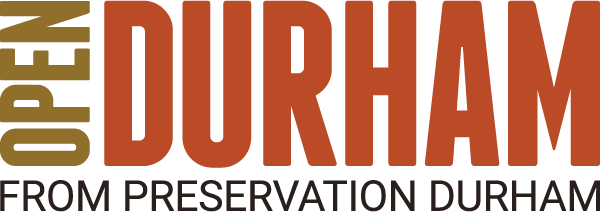
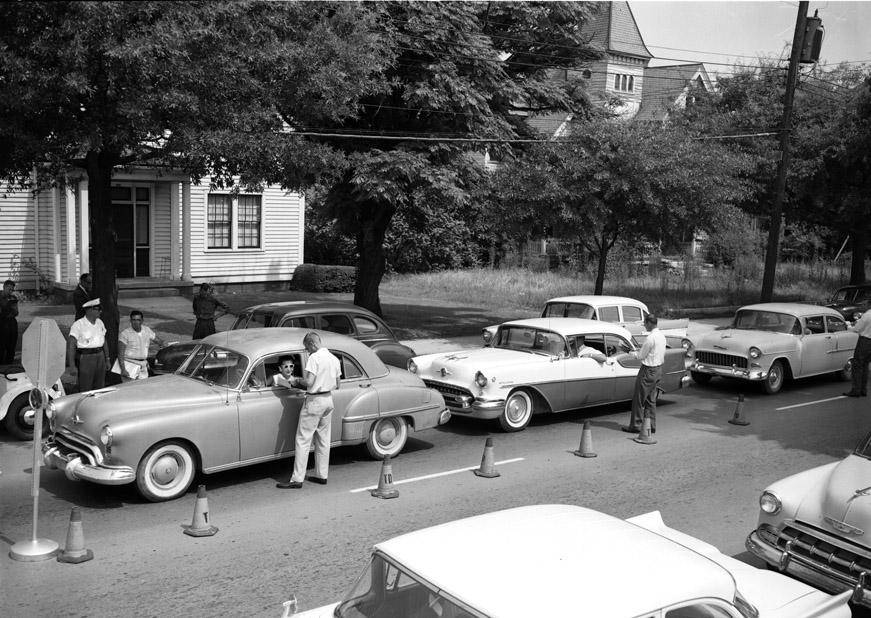
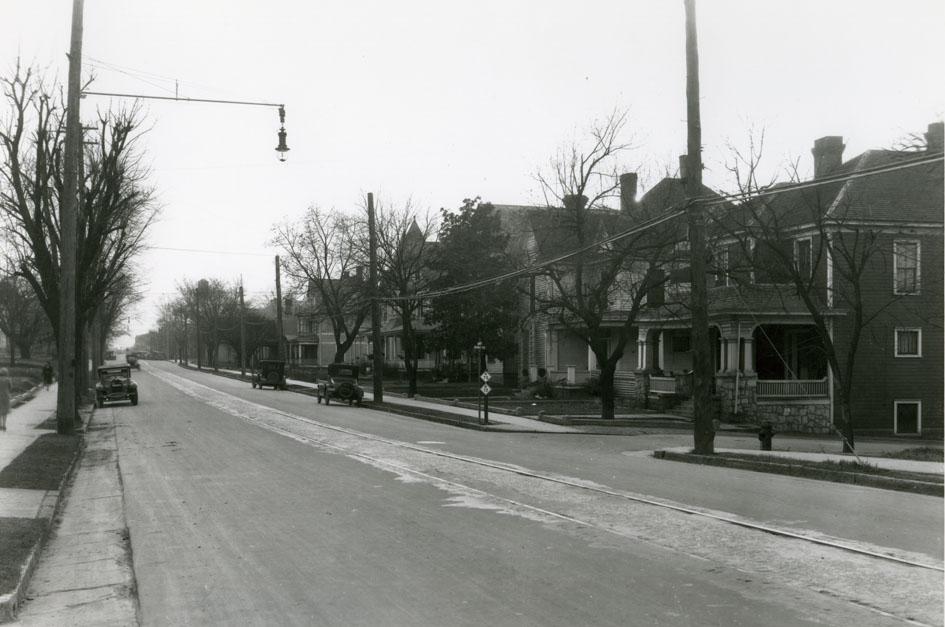
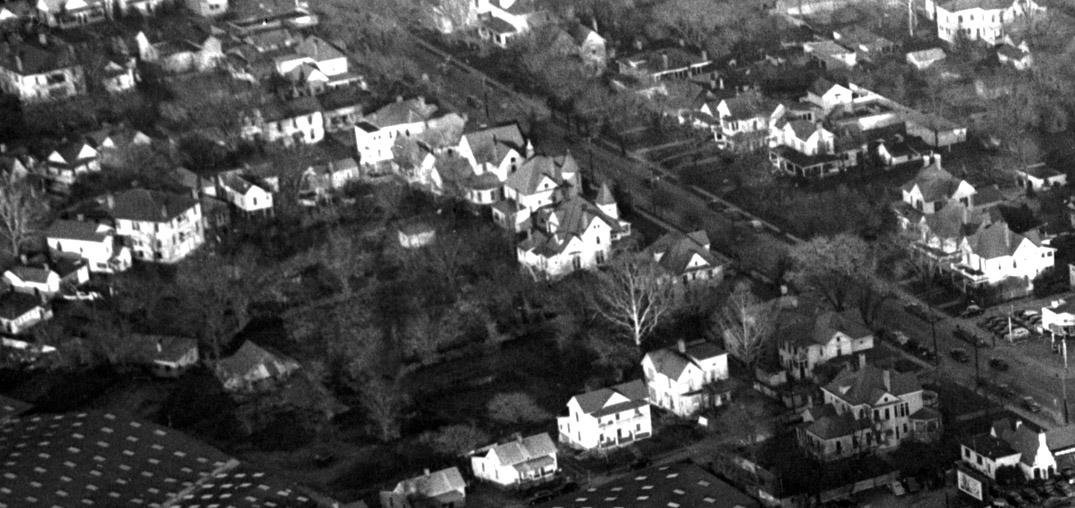
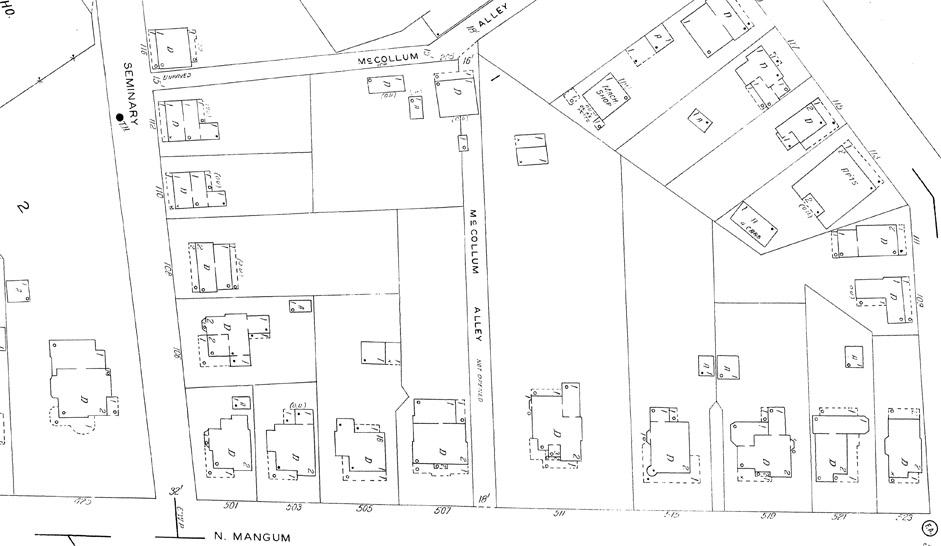
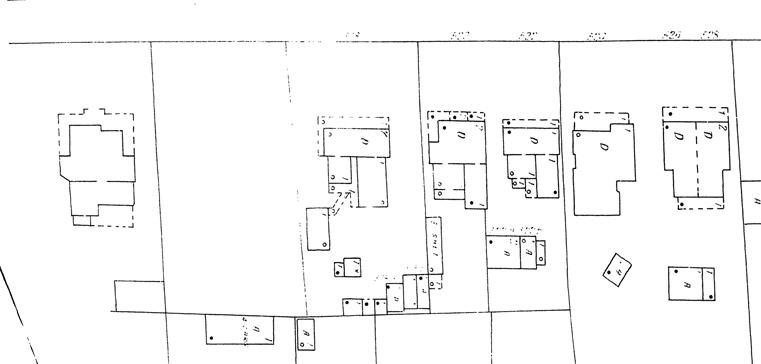
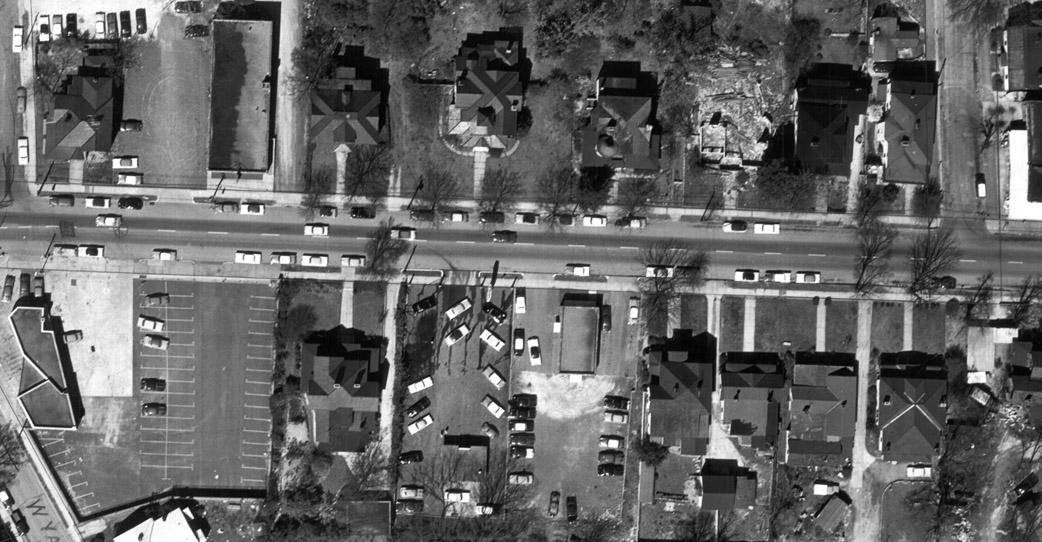
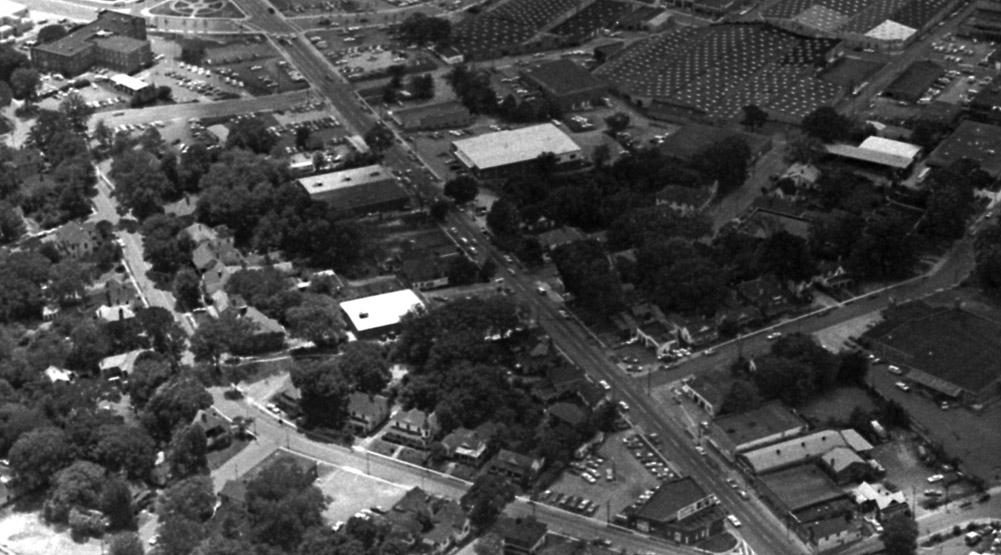
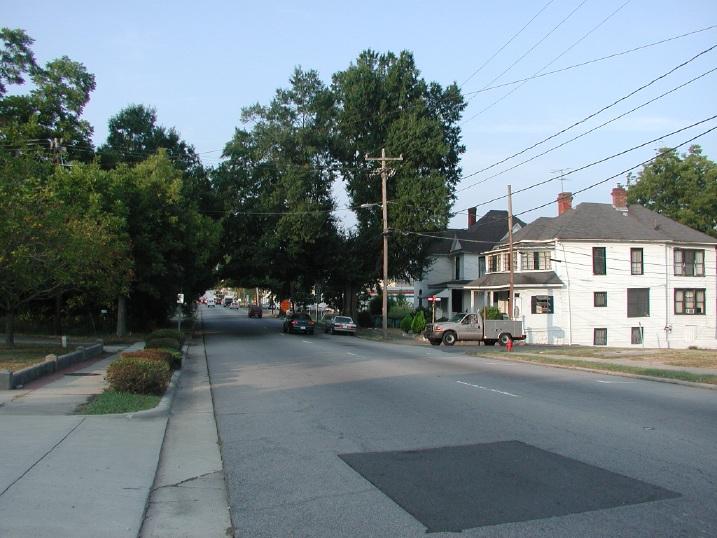
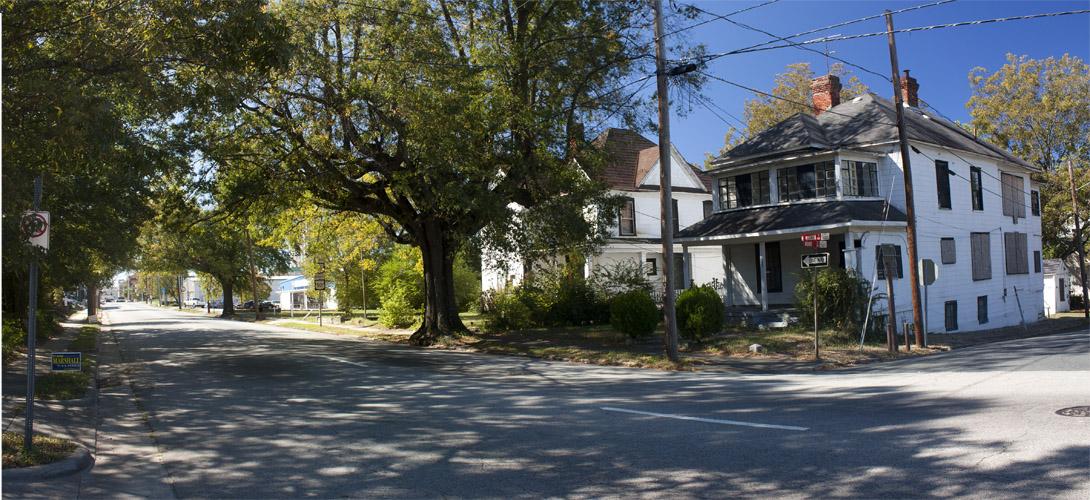
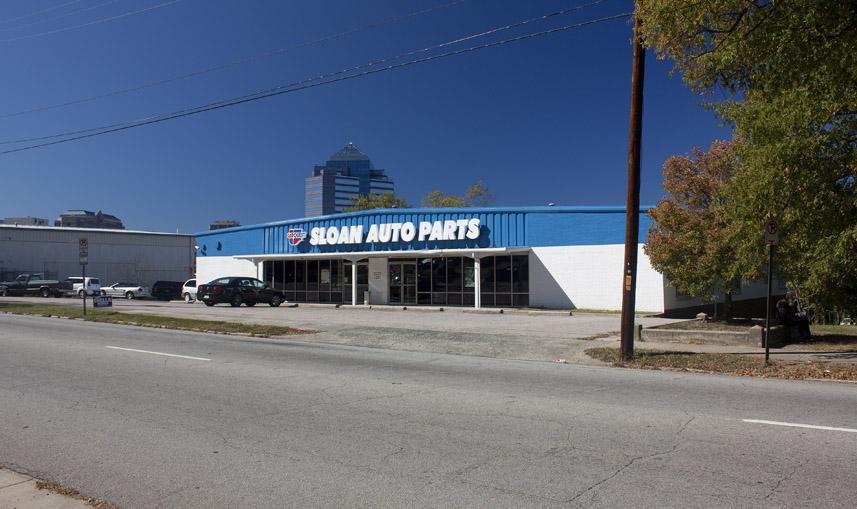
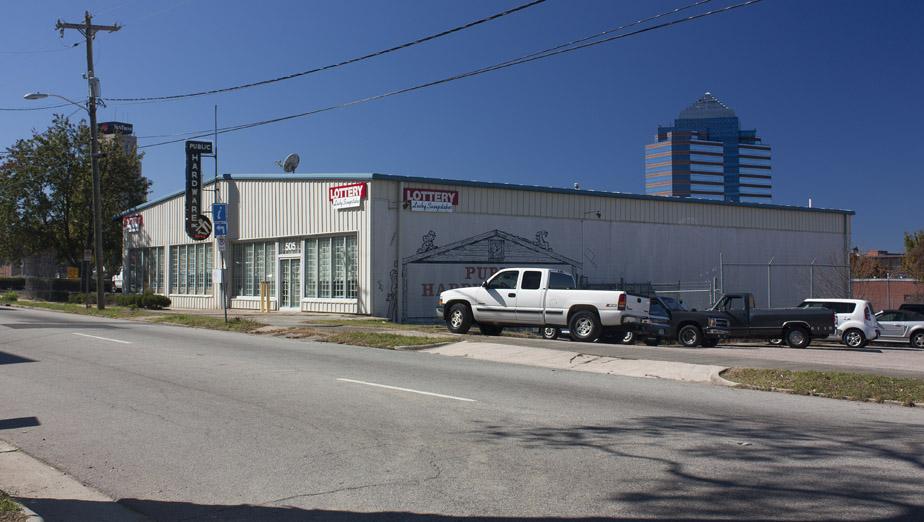
Add new comment
Log in or register to post comments.